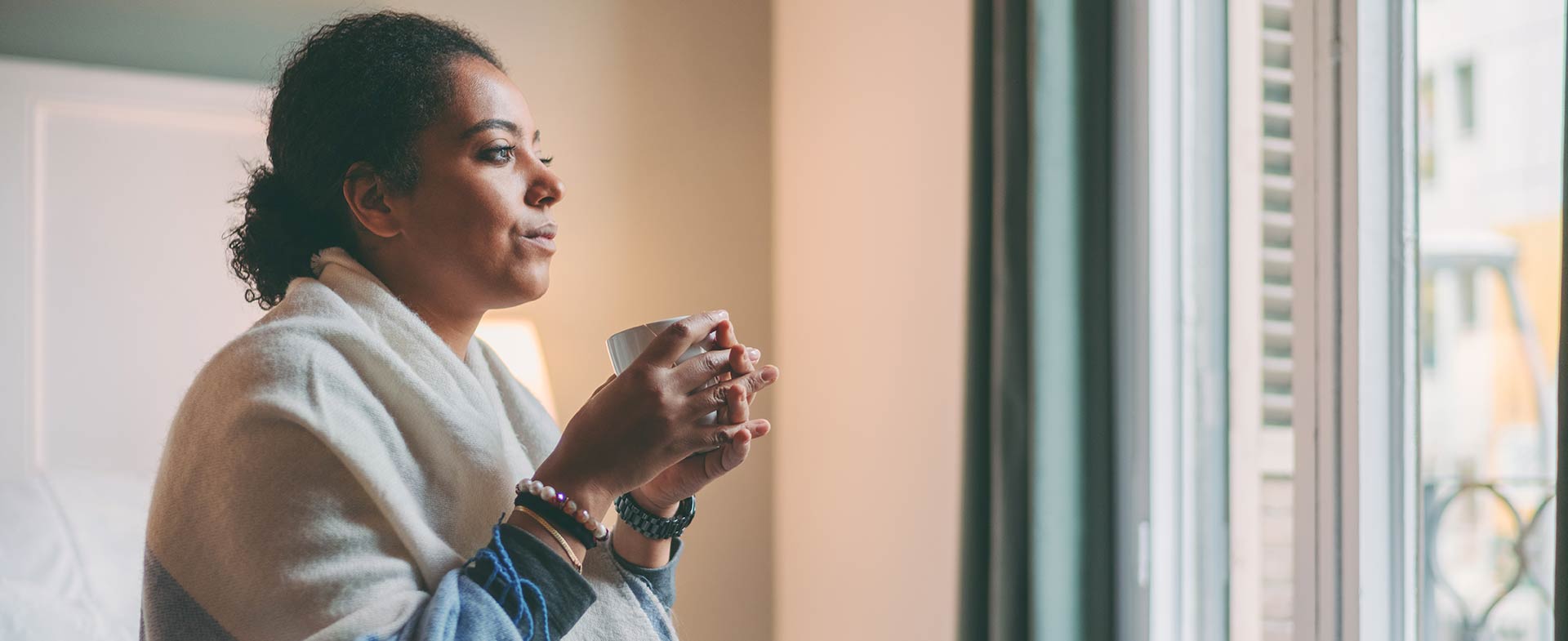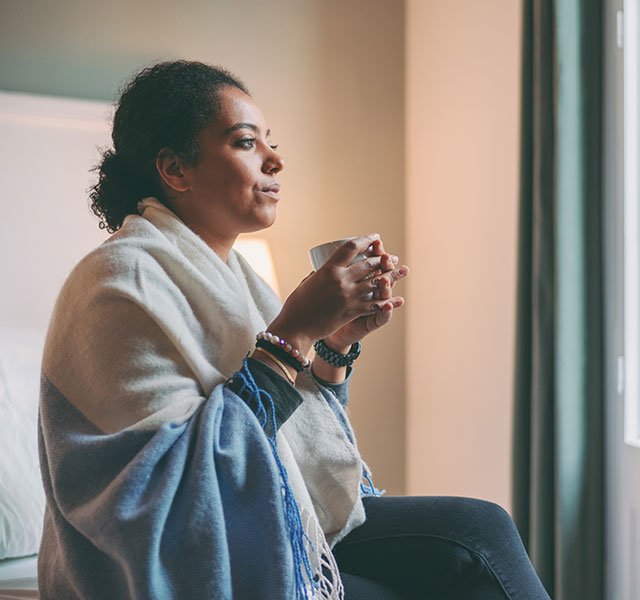Sadness gets a bad rap. How many times have you heard sayings like, "Don't worry, be happy," "Keep your chin up," and "Focus on silver linings"? Society’s message always seems to be that we should avoid feeling sad at all costs.
And yet, according to Nicole Glickman, MSW, a licensed clinical social worker at Henry Ford Health, sadness is a normal, healthy response to loss, disappointment or difficulty. "When you lose a loved one, a job, or a relationship — or you're living through a pandemic that requires periods of isolation — allowing yourself to feel sad can help you move past the pain,” she says.
What Does "Healthy Sadness" Look Like?
When you feel down or blue for a few days, that's sadness. It's short-lived and it happens in response to a clear trigger.
Mild, short-term episodes of sadness can be beneficial. They cultivate gratitude for happy times and serve as a powerful motivator to change negative circumstances. Sadness can even act as a muse, spurring the creation of music, literature and art.
The key to "healthy sadness" is finding a way to express the emotion. "It's important to let your feelings out, to vent to a friend or a family member," Glickman says. A few healthy approaches to managing sad and painful emotions:
- Cry
- Write in a journal
- Exercise
- Spend time with friends and family members
- Find a creative outlet
Unfortunately, sadness can linger, particularly if you turn to unhealthy coping mechanisms such as substance abuse, inactivity and isolation.
"That's one reason the mental health crisis reached an all-time high during the pandemic," Glickman says. "Many of the things we rely on to pull ourselves out of sadness — social connections, working out at a gym, pursuing creative activities — were largely off-limits."
When Sadness Turns Into Depression
Depression is a clinical disorder that can happen when you get stuck in sadness. So while depression is not the same as sadness, it often includes unexpressed sadness.
"Sadness tends to improve with time, but depression is ongoing, lasting for two weeks or more," Glickman explains.
Unfortunately, many of us fail to recognize when we've become stuck in our sadness — and we don't get the help we need to address it in healthy ways. Signs of depression include:
- Disinterest in activities you used to enjoy
- Feelings of hopelessness, worthlessness or guilt
- Fatigue
- Changes in appetite
- Shifts in sleeping patterns
- Difficulties with focus and concentration
- Thoughts of death and suicidal ideation
If you, or someone you love, is experiencing any of these signs or symptoms, it's important to reach out to your healthcare provider. "Depression is very treatable, particularly when it's caught early," Glickman says.
Subscribe today to receive weekly emails of our latest tips.
To find a doctor or psychologist at Henry Ford, visit henryford.com or call 1-800-436-7936.
Nicole Glickman is a licensed clinical social worker who sees patients at Henry Ford Medical Center - Columbus.



